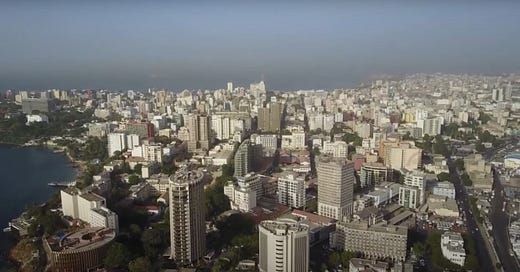Would you believe me if I told you that over the past 50 years, Africa received more than $1 trillion in development aid?
Africa indeed received more than $1 trillion in development aid in the past 50 years but this aid which often comes with many strings attached has ruined the continent instead of developing it.
Therefore it’s necessary for all of us to honestly ask whether charity or aid really works and if not do away with the myth that charity will be the solution to Africa’s problems and rethink a new development model going forward.
In her book Dead Aid, Dambisa Moyo rhetorically asks why African countries ‘flounder in a seemingly never-ending cycle of corruption, disease, poverty and aid-dependency’, despite the fact that African countries have received more than $300 billion in development assistance since 1970?
Dambisa’s answer: This aid is the root of all of these problems. Despite the strongly held belief that developed countries should help underdeveloped countries, the reality is that aid slows the rate of development and growth of countries in development.
She adds: ‘Aid has been, and continues to be, an unmitigated political, economic and humanitarian disaster for most parts of the developing world.’
For instance between 1970 and 1998 during the peak of aid to Africa, the poverty rate in Africa grew from 11% to 66% and the most aid-dependent countries had an average annual growth rate of -0.2%. Yes, that’s negative 0.2.
According to Dambisa, this is due to the fact that aid encourages corruption and conflict while discouraging entrepreneurship.
Starting an enterprise is one of the most patriotic and charitable acts you can do. You’ve proactively decided to tackle and solve a problem, and if your endeavour is successful, you won’t just solve this problem but you’ll also create jobs and wealth for yourself and for your country.
This is one of the reasons why vibrant entrepreneurial ecosystems have been and still are to this day the source of most jobs, innovation and progress since the industrial revolution and countries with vibrant startup ecosystems are the wealthiest in the world.
It’s problematic that much of the public debate about African development often revolves around aid and charity instead of public and private investments.
When we look at other countries and regions of the world which have exponentially developed over the past decades, it’s evident that charity played a negligible role.
For instance, China did not lift millions from poverty through philanthropy, charity or aid. The Chinese government created an environment which incentivised entrepreneurship and provided the needed capital and infrastructures which allowed people to create businesses and jobs. This led more people to gain employment and wealth creation.
From the onset, we can see that entrepreneurship plays and will play an even bigger role in the coming decades in fulfilling the African potential.
Without a thriving African startup ecosystem made up of ambitious and pioneering founders, building startups which will solve the problems faced by 1.3 billion Africans, African economies won’t be able to create jobs and wealth. Jobs that will increase the incomes of Africans and subsequently drive revenue to the coffers of African governments.
Entrepreneurship is hard. Whether the founder is based in Silicon Valley, London or Dakar, the challenges faced by founders are almost unbearable. These challenges are even more accentuated for African founders.
These societal challenges provide Africans who are known to be highly enterprising with the opportunities to create solutions which will advance their societies.
As a founder and operator, I’m a firm believer that where there are challenges there are opportunities and business opportunities are plenty and abundant in Africa.
It’s impossible to stop an idea whose time has come and in the 2020s we must see a complete shift in our strategy to tackle and solve the problems faced by Africa.
A good starting point is to make the shift from charity and aid to public and private investments especially drive up venture capital investments on the continent.
Local and international investors are beginning to pay attention to the greenfield opportunities available in Africa.
VC funding in Africa for the past five years has been growing at an almost 2x rate.
2016=$367M
2017=$560M
2018=$1.16B
2019=$2.02B
2020=$2.04B
This is a testament to the increasing trust of foreign and African investors in the African tech ecosystem.
Recently I heard reports of African countries such as Nigeria setting up sovereign wealth funds and being limited partners in some African venture capital firms. This is two steps in the right direction.
It’s important to acknowledge that charity or aid can be beneficial hence the use of “less” and not eliminate. What I’m advocating for is a far more balanced approach to African development.
As always, it’s easier said than done but as a pioneer may you pioneer ecosystems that will outlive you.
As a builder may you build buildings that will outlive you.




